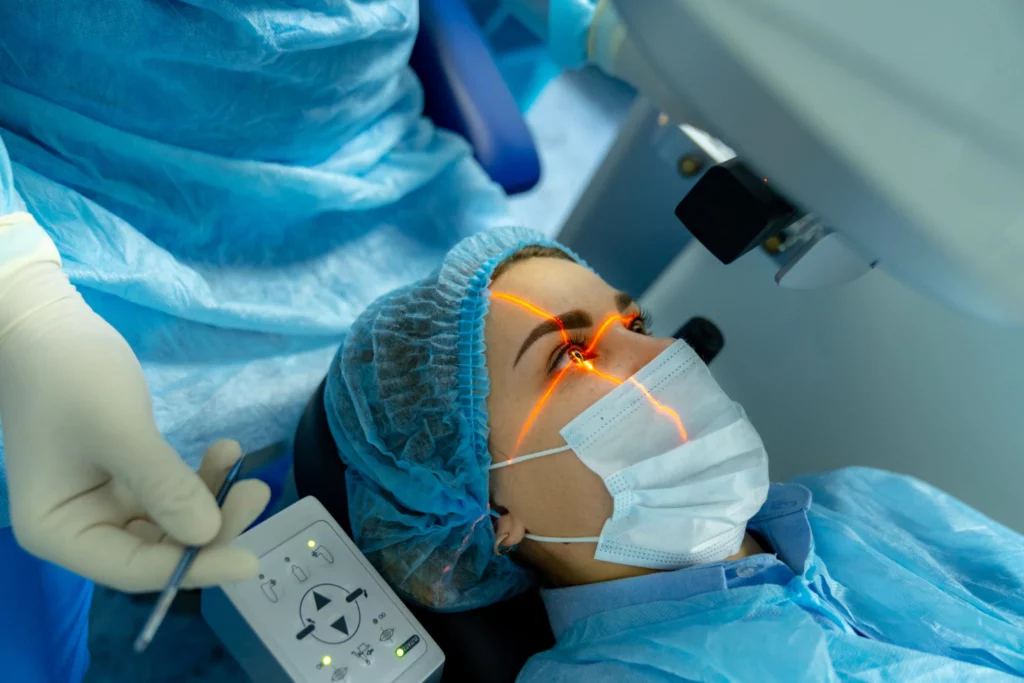Introduction: A New Chapter in Sight
There’s a quiet relief that settles in after cataract surgery—the kind that comes when the fog finally lifts. For many, it’s not just about seeing again; it’s about living again. Whether you’ve just undergone cataract removal or are considering it, you might be wondering: When will I get back to my normal life? Can I read comfortably? Drive at night? Enjoy TV like I used to?
The truth is, the first 30 days after surgery are a journey of healing and rediscovery. And while everyone heals a little differently, there’s a common path most patients follow. Let’s walk through it—week by week—so you know what to expect and can move forward with confidence.
Week 1: The First Few Days After Surgery
Let’s start with honesty: the first few days may feel a little strange.
You’ve just had cataract removal, and while the surgery itself is quick and painless, your eye is adjusting. You might notice:
- Mild itching or a scratchy feeling
- Sensitivity to light or glare
- A little blurry or hazy vision
Don’t worry—this is all completely normal. Your eye has just been through a procedure and is gently healing.
Your job this week? Rest and protect your eye.
- Use your eye drops exactly as prescribed—they help fight infection and inflammation.
- Avoid rubbing or touching your eye, even if it feels weird.
- Wear your protective shield at night to avoid accidental bumps while sleeping.
- Take it easy—no heavy lifting, no bending low, and definitely no swimming or dusty environments.
Most importantly, don’t skip your follow-up visit, usually scheduled for the next day. This quick checkup allows your doctor to make sure everything is healing properly.
See more: Sorting Through the Cataract Lens Price List: Which Option Is Right for You?
Week 2: Adjusting to Clearer Vision
This is where things start getting exciting. Many patients wake up one morning and say something like:
“I didn’t realize how dull the world had looked until now.”
Colors seem brighter, reading becomes easier, and your surroundings look crisper. It’s like someone wiped a foggy window clean.
During this week:
- You can read a book, watch TV, or scroll on your phone without straining.
- Going for walks or doing light chores is usually safe—just avoid anything that risks dust or eye injury.
- If you’ve been nervous, you might now feel curious, hopeful, or even amazed.
It’s also the time when patients start imagining life beyond recovery: maybe driving again, returning to work, or simply enjoying a hobby with full clarity.
Week 3: Gaining Confidence and Freedom
By now, your confidence is likely growing. The itchiness is fading, the vision is sharper, and you might be noticing a big difference, especially in low-light settings.
This week, many patients:
- Return to driving, especially during the day
- Socialize more, like going to lunch with friends or visiting grandkids
- Resume hobbies like reading, knitting, gardening, or writing
One of the most common joys I hear about is night driving. Before cataract removal, many seniors avoided it because of glare, halos, or fear of the unknown. Now, streetlights and headlights are more manageable, and depth perception improves.

Some patients may still notice faint halos or light streaks—but these usually fade with time.
Week 4: Seeing the World Differently—Literally
This final week of the first-month recovery is truly special. By now, most vision has stabilized, and what once felt “new” is becoming your new normal.
Here’s what to expect:
- Your follow-up eye exam will determine if you still need glasses (many don’t!)
- Life starts to feel effortless again—reading menus, recognizing faces, enjoying movies
- You might even notice colors look richer, and details you once missed (like tree leaves or fabric textures) come alive again
A patient once told me, “I thought my yellowing vision was just part of aging. Now I see what I was missing.”
FAQs
Can I rub my eyes now?
Not yet. Even if your eye feels better, rubbing can cause irritation or infection. Always err on the side of caution.
Will my vision keep improving after the first month?
Absolutely. While most clarity returns in 4 weeks, subtle improvements can continue for a few months. Your brain is also adjusting to the new input.
What if one eye feels different than the other?
It’s normal. If you’ve had surgery on one eye only, your eyes are adjusting to working together again. Once both are treated, balance usually returns. But always mention any concerns to your doctor.
Conclusion: A New Way of Seeing, A New Way of Living
Cataract surgery is more than a procedure—it’s a gift. One that offers many people the chance to read with ease, drive safely at night, and truly see their loved ones again.
The first 30 days may come with a few ups and downs, but what lies on the other side is life-changing. Every day brings a little more clarity, a little more brightness, and a whole lot more joy.
If you or someone you love is going through cataract removal, know that with patience, rest, and proper care, a clearer world is just around the corner.
And remember: you’re not just getting your vision back—you’re getting your freedom back.
4o
